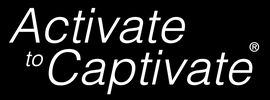|
One of the biggest anxieties presenters have is how to handle the Q & A session after a talk. With so many variables at play, it’s completely understandable that people worry about preparing for every scenario. That’s why I’ve put together these tips to help you feel confident before your next presentation.
Scenario 1: You’ve never thought about that idea before. Part of what makes presentations so wonderful is that it’s an opportunity for others to hear your ideas and share theirs. You’re not expected to have thought of every single possibility beforehand. That’s why you go to an event, to hear ideas from people with different backgrounds. If someone brings up something new you could say: “That isn’t something I’ve thought about before, but I’ll be sure to give it some consideration now that you’ve brought it to my attention.” People appreciate when you take the time to listen to their ideas, even if you don’t have an immediate answer. Scenario 2: You have no clue what the answer is. If you don’t know what the answer is, instead of worrying — just tell them the truth. You could say, “That’s a great question but not my area of expertise, so I don’t feel I can answer that right now.” It’s important to remember that you’re human and you aren’t expected to have all the answers. As long as you don’t collapse and react negatively, the audience member will appreciate that you listened to their comment. Scenario 3: You should know the answer, but can’t think of it. If someone asks a basic question, and you freeze, let the audience know. For example you could say, “That’s something I should know the answer to, but to be honest, at this moment it isn’t coming to me. I’m sure I’ll think of it right after this is over.” People understand the stress that comes with presenting. Everyone has had a moment where they blank out. Just let people know what’s happening, and then you can move on to the next question. Remember not to self-destruct when answering questions. You are human and you’re not expected to prepare for every possibility. Respond like you would if a friend asked you this question. If something surprises you, remember to breathe, state the facts, and then focus on continuing the conversation. That way, if you don’t know the answer to a question, it won’t matter. You can move on and still make a great impression. Author: Bri McWhorter Comments are closed.
|
AuthorBri McWhorter is the Founder and CEO of Activate to Captivate. Categories
All
Videos
Archives
June 2024
|
Click to Contact
© 2014-2024 Activate to Captivate, LLC
All Rights Reserved
All Rights Reserved


 RSS Feed
RSS Feed
